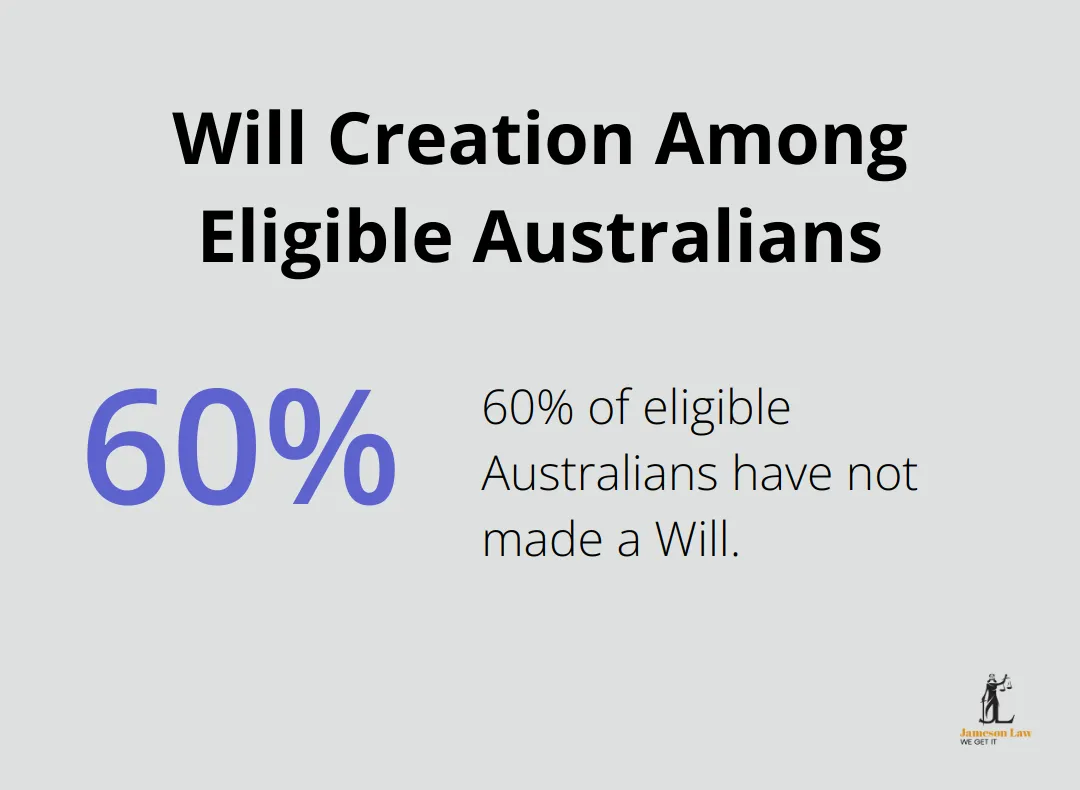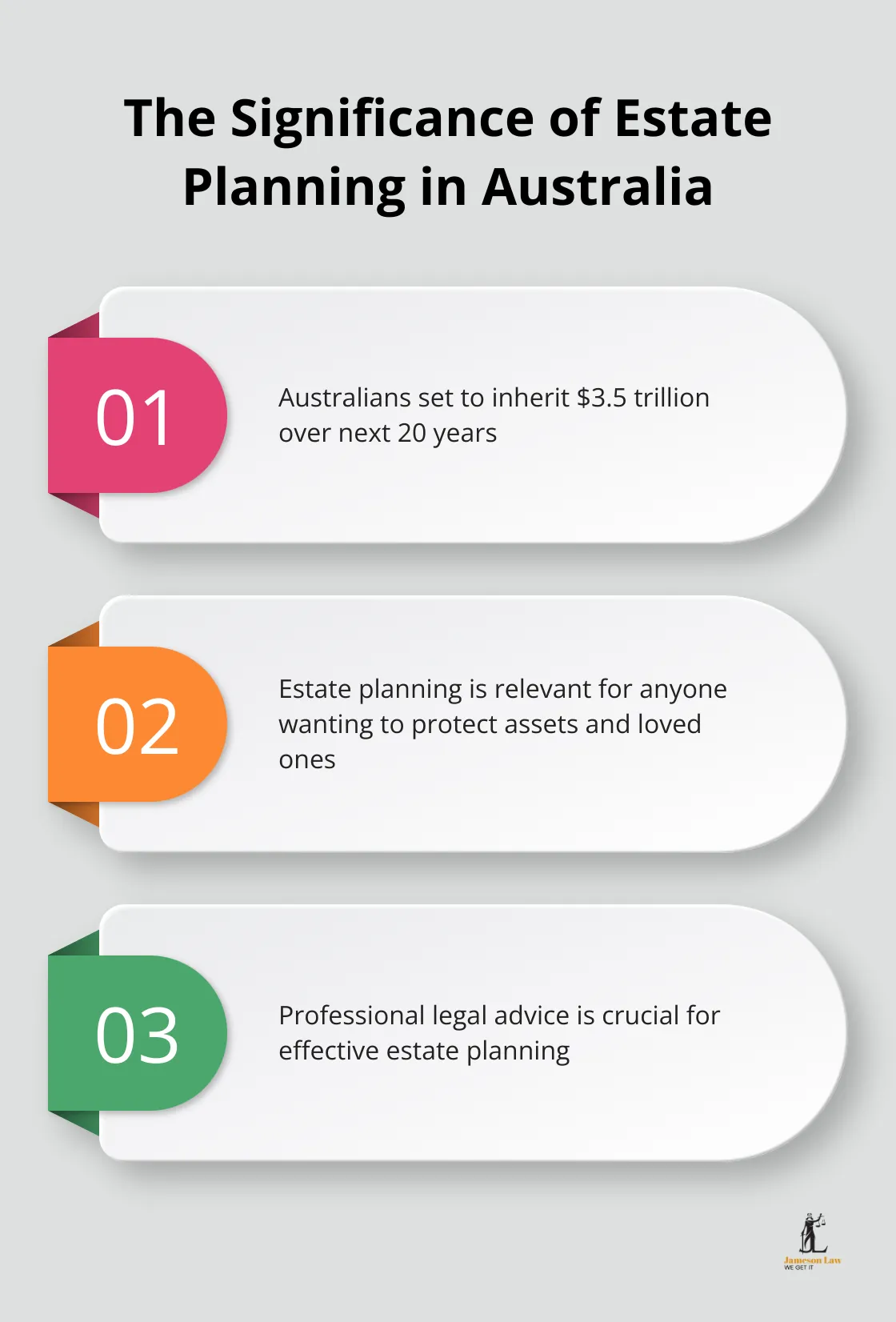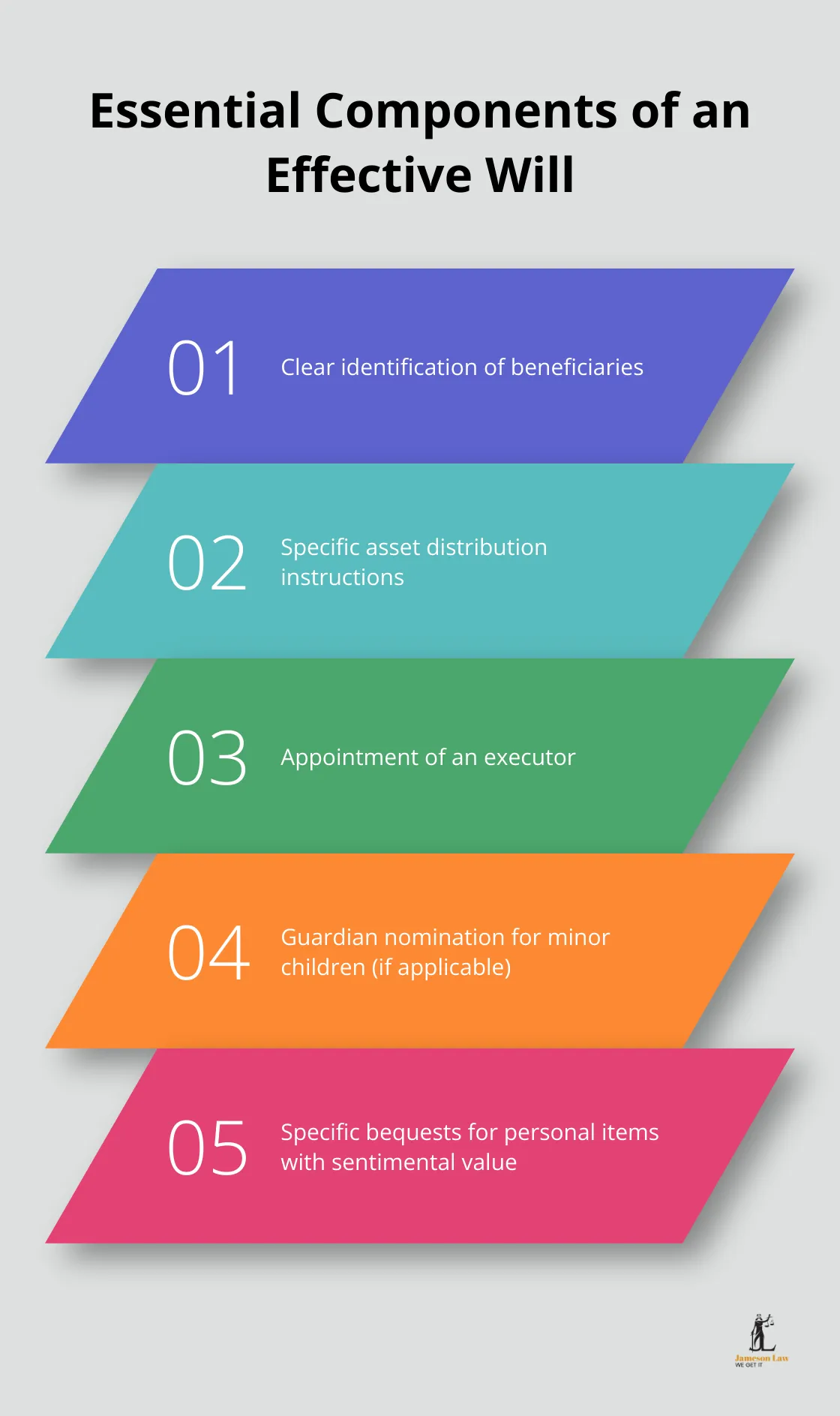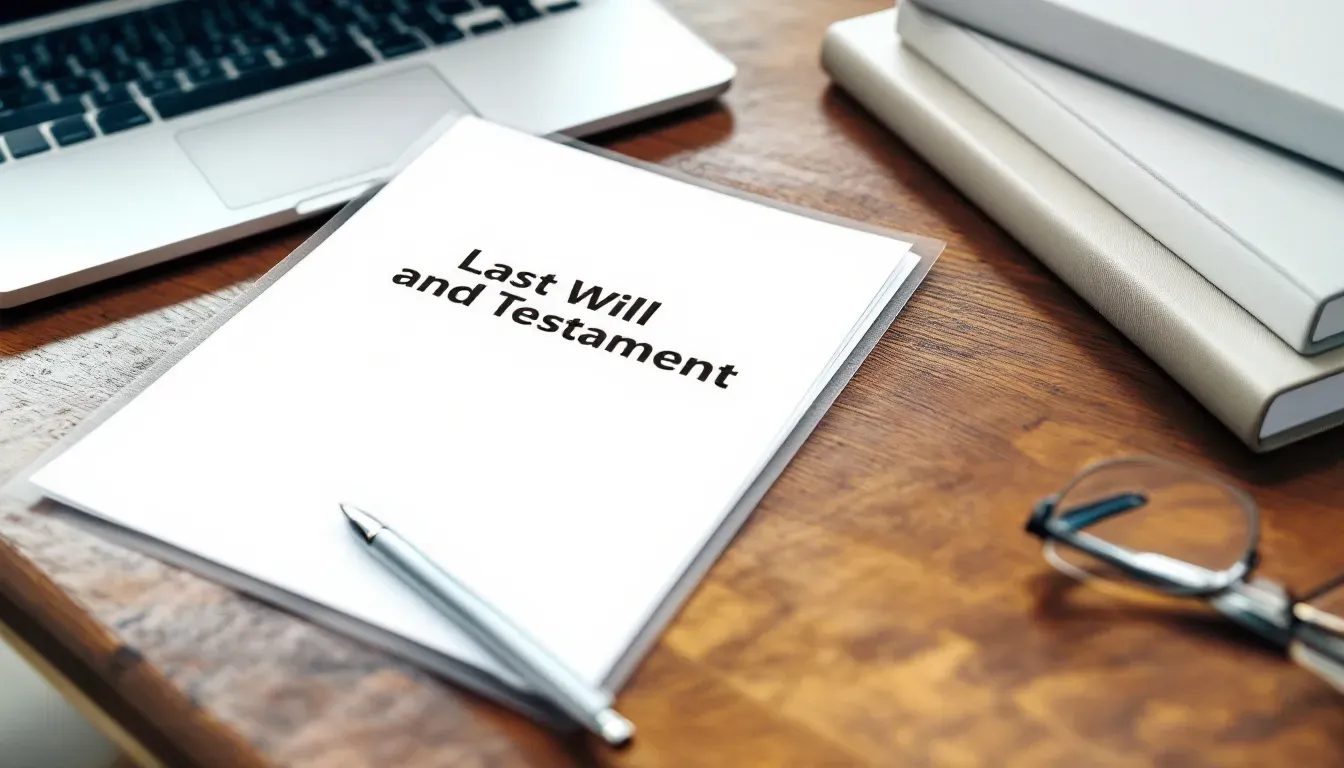Estate planning is a crucial process that helps secure your family’s future. Many people wonder, “Does estate planning include wills?” The answer is a resounding yes.
At Jameson Law, we understand that creating a comprehensive estate plan involves more than just drafting a will. It’s about ensuring your assets are protected and your wishes are carried out after you’re gone.
What Is Estate Planning?
The Comprehensive Process of Estate Planning
Estate planning extends far beyond the creation of a will. It involves a strategic approach to managing your assets and affairs to ensure your wishes are executed after your passing. In Australia, the significance of estate planning has increased as the population ages and intergenerational wealth transfer expands.
Key Components of an Estate Plan
A robust estate plan typically comprises several essential elements. At its foundation lies a will, which outlines your asset distribution preferences. However, the plan often incorporates additional documents such as powers of attorney, advance care directives, and in some cases, trusts for more effective asset management.
Between 58% and 60% of eligible Australians, or around 12 million people, have not made a Will. This statistic leaves a substantial portion of the population at risk of having their assets distributed according to intestacy laws (which may not align with their intentions).

The Australian Context of Estate Planning
Estate planning holds particular importance in Australia. Griffith University researchers estimate that Australians are set to inherit an estimated $3.5 trillion over the next 20 years, underscoring the need for clear and comprehensive planning.

It’s a common misconception that estate planning is exclusively for the wealthy. In reality, it’s relevant for anyone who wants to protect their assets and loved ones. For example, if you have minor children, an estate plan allows you to appoint guardians and establish financial provisions for their care.
Financial Implications of Inadequate Planning
The absence of proper planning can result in significant costs and family disputes. This highlights the financial ramifications of neglecting to create a proper estate plan.
The Role of Professional Guidance
Professional legal advice plays a vital role in creating an effective estate plan. Experienced lawyers can guide you through the process, tailoring your estate plan to your unique circumstances and goals. They can help you navigate complex legal requirements and ensure your plan is comprehensive and legally sound.
As we move forward, it’s important to understand the specific components of an estate plan in more detail. Let’s examine the cornerstone of most estate plans: the will.
Creating a Will: The Foundation of Estate Planning
The Significance of a Well-Crafted Will
A will forms the cornerstone of estate planning. This legally binding document outlines how you want your assets distributed after your death. In Australia, a valid will ensures your assets go where you want them to and your loved ones are provided for.
The absence of a will can lead to significant stress, time, and financial burden for your family. Without one, your assets may be distributed according to intestacy laws, which might not align with your intentions. Approximately 52% of adult Australians don’t have a will, potentially leaving their families in difficult situations.
Legal Requirements for a Valid Will in Australia
To create a legally binding will in Australia, you must:
- Be at least 18 years old
- Be of sound mind
- Have the will in writing
- Sign the will as the testator
- Have two adult witnesses (who are not beneficiaries) sign the will
While DIY will kits exist, the complexities of estate law make professional assistance advisable. (Jameson Law offers expert guidance in this area, ensuring your will meets all legal requirements.)
Essential Components of an Effective Will
A comprehensive will should include several key elements:
- Clear identification of beneficiaries
- Specific asset distribution instructions
- Appointment of an executor
- Guardian nomination for minor children (if applicable)
- Specific bequests for personal items with sentimental value
- A residuary clause to address any assets not specifically mentioned
These details can prevent family disputes and ensure your wishes are carried out accurately.

The Importance of Regular Will Updates
Life changes, and your will should reflect these changes. Major events that should prompt a will review include:
- Marriage
- Divorce
- Birth of a child
- Significant changes in assets
While a will is a critical component of estate planning, it’s just one part of a comprehensive strategy. The next section will explore other essential documents to consider in your estate plan, including powers of attorney and advance care directives.
Beyond the Will: Other Essential Estate Planning Documents
Power of Attorney: Protecting Your Interests
A power of attorney (POA) covers financial and legal decisions only. You can appoint someone to act on your behalf while you have capacity, or enduringly (if you later lose capacity). It does not include lifestyle or medical decisions.
To create a valid general power of attorney or enduring power of attorney in NSW, you must use the prescribed forms as set out in the Powers of Attorney Regulation 2016.
Appointment of Enduring Guardian
This is a separate legal document that allows you to appoint someone to make lifestyle and medical decisions if you lose capacity. This includes:
- Where you live
- What healthcare or medical treatment you receive
- What personal services or supports you receive
This is where things like “refusing medical treatment” can be actioned — but only if you’ve lost capacity.
Advance Care Directive: Your Healthcare Wishes
This is not a legal form in the same sense — it’s a document you typically complete with your GP. It outlines your future health care preferences and values, including wishes about life-sustaining treatment. While it’s not “legally binding” in the same way as the other two documents, it carries legal weight and should be followed where possible.
The prevalence of advance care planning in primary care is vastly lower than in aged care and acute hospitals, signaling a major policy challenge for enabling end-of-life care planning.
Testamentary Trusts: Asset and Beneficiary Protection
Testamentary trusts are established within your will and take effect after your death. These trusts offer several advantages, including tax benefits and asset protection for beneficiaries. They are particularly useful for providing for minor children or beneficiaries with special needs.
A beneficiary to a Testamentary Trust will be entitled to marginal tax rates when being assessed on income from the trust, while also receiving other tax benefits.
Superannuation and Life Insurance: Beneficiary Designation
Your superannuation and life insurance policies often represent significant assets that don’t automatically form part of your estate. It’s important to nominate beneficiaries for these assets to ensure they’re distributed according to your wishes. Contact your superannuation fund and request a “Binding death benefit nomination” form.
We recommend reviewing and updating these documents regularly, especially after major life events such as marriage, divorce, or the birth of a child. Addressing these additional aspects of estate planning creates a comprehensive strategy that protects your assets and provides for your loved ones in various scenarios.
Final Thoughts
Estate planning encompasses more than just creating a will. A comprehensive estate plan includes powers of attorney, advance care directives, testamentary trusts, and beneficiary designations for superannuation and life insurance policies. These components protect your assets and ensure your wishes are carried out after you’re gone.
Professional legal advice is essential when creating an estate plan. The complexities of estate law, tax implications, and the need for legally binding documents make expert guidance invaluable. Jameson Law offers tailored estate planning services to align with your unique circumstances and goals.
Estate planning is an ongoing process that requires regular reviews and updates. As your life changes, your estate plan should evolve to reflect new circumstances and ensure it remains effective. Take the first step today by consulting with a legal professional to create a comprehensive estate plan that provides security for your loved ones.













